Forget Wars on Covid and Terror: War on Climate Collapse Is the Only War of Necessity for Human Survival
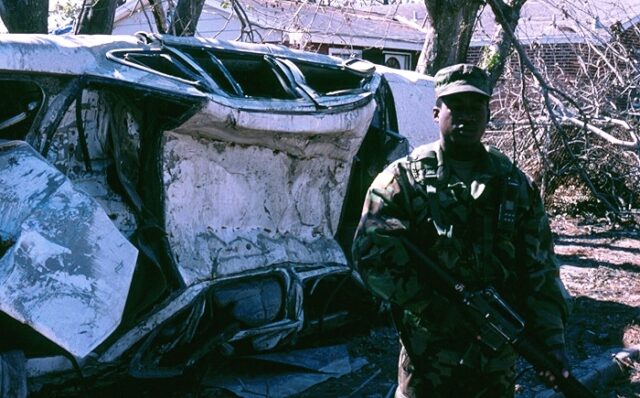
Mythology of humans’ natural impulse for empathy
Warfare has been a plague haunting the human species ever since our evolution to become Homo Sapiens, finally, around 300,000 years ago in Africa. Etymologically, homo means human and sapiens means wise or knowledgeable. One can see that in this 18th century anthropocentric characterization of our species, the notion of wisdom was highly overrated. What made our common Homo sapiens ancestors any wiser than the Neanderthals that they would eventually invade and annihilate? History is narrated by victors, therefore we were told that Homo sapiens were highly superior to the so-called brutal Neanderthals. It could be true in territorial ambitions, and some technological aspects, but it remains questionable in other area of social activity.
Ultimately, a taste for adventure and conquest is what drove Homo sapiens to expand their territories on Earth. It would be utterly naive to think that this progressive form of colonization was accomplished through peaceful means. No, unfortunately for our species, a propensity for aggression, for domination through warfare was always present in Homo sapiens DNA.

Despite Jean-Jacques Rousseau’s cornerstone idea that humans had a natural impulse to compassion and empathy, part of our being was always selfish, brutal and predatory. This inherent, and almost genetic, conflict explains the permanence of warfare in human history. The oscillations, both individually and collectively, between empathetic and sociopathic behaviors is what could be defined as our Dr. Jekyll & Mr. Hyde conundrum. It is simultaneously, our collective human blessing and burden, and it has defined both the incredible successes and the colossal failures of humanity.
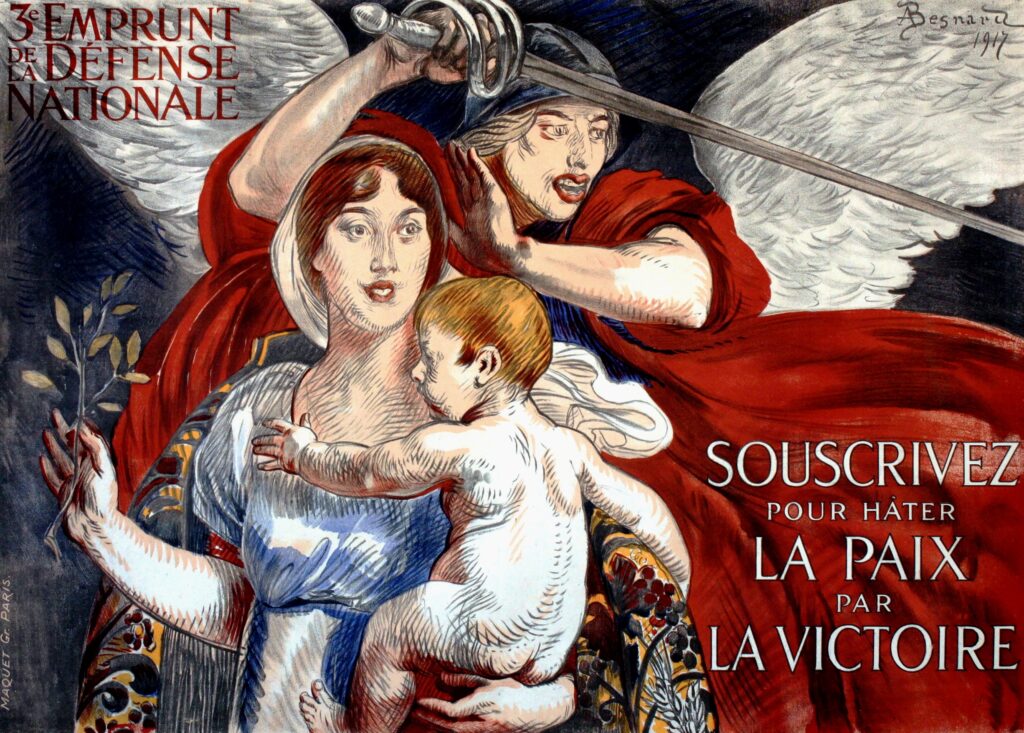
Wars of necessity or of choice: all wars are for profit
Warfare in the 20th century was rather simple compared to today’s predicaments. Either during World War I or World War II, nations had traditional alliances which were usually respected and recognized by treaties. Usually formal declarations of wars were issued before a military action -at the exception of Japan’s surprise attack on Pearl-Harbor. The two wars were sold by leaders to their respective populations as wars of necessity. In both cases, they were still wars fought by conscripts, as professional soldiers, a euphemism for mercenaries, are usually not eager to become cannon fodder.
While the United States cautiously, one could say cowardly, stood on the sideline during World War I until 1917, the conflict unquestionably triggered the Russian revolution, as poor Russians conscripts refused to fight the tsar’s war. As Marxist ideas were quickly spreading elsewhere in Europe, many French soldiers refused to fight their German brothers for the sake of capitalism. Many conscripts then knew that the so-called war of necessity was a scheme of war for profit. At the Versailles treaty, Germany was forced to pay an enormous amount to France, in gold, as war compensation. In the Middle East, in an even more substantial perennial spoils of war story, the two dominant empires of the time, the United Kingdom and France had grabbed for themselves the bulk of the Ottoman empire through the secret 1916 Sykes-Picot agreement.
If you analyze the war of necessity versus war of choice, and correlation of war for profit during World War II, in the case of the United States, first you wonder what took the US so long to enter the war alongside their allies France and England? The answer is often murky, as many major US corporations such as Ford Motor and General Motors ,as well as policymakers such as Joe Kennedy (father of JFK), had either vested economic interests in Nazi Germany or were upfront in their support for Adolf Hitler.
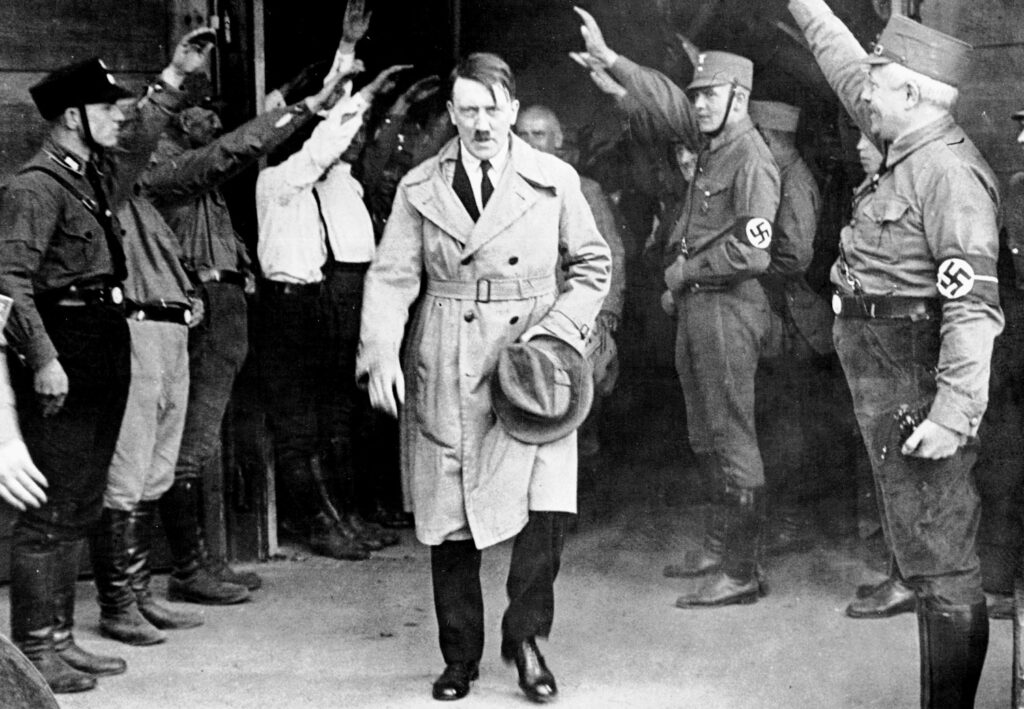
Further, once the United States was attacked by Japan and finally committed to the European part of the conflict against Germany, a large part of Detroit’s manufacturing sector was converted to military purposes. In the United States, it is arguably more this massive war effort than FDR’s New Deal which turned the US economy into a juggernaut, in a dramatic recovery from the Great Depression, which the Wall Street crash of 1929 had started. Warfare writes human history using blood and tears for ink, but the merchants of death of the military-industrial complex and their financial market affiliates always profit handsomely.
If slavery or slave labor is the ideal structure for capitalism, any war, under any pretext, is the perfect business venture, as it provides a fast consumption of goods (weapons & ammunition), cheap labor force using the leverage of patriotism — defend the motherland or fatherland — and infinite money to rebuild once capitalism’s wars for profit have turned everything to ruins and ashes. After World War II, the US Marshall Plan was painted as some great altruistic venture, but in fact it justified a long-term occupation of Germany and incredibly lucrative contracts, some of them aimed at controlling West Germany’s economy and government.
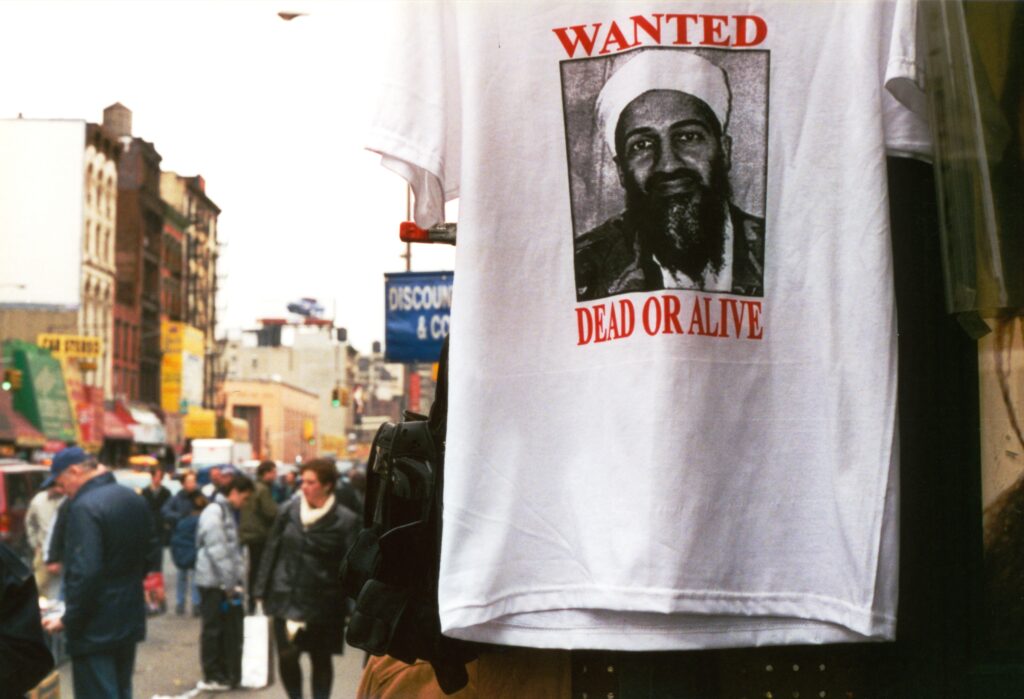
Rise of conceptual wars: war on terror & war on Covid
If the wars of the 20th century were conventional as they either opposed sovereign nations or were in the context of imperial-colonial setback, like the French war in Indochina, Algeria’s independence war against France, some were specifically defined by the Cold War era, like the Korea war. From World War II at the Yalta conference, two new empires had emerged as dominant: the United States and the USSR. The world had then the predictability of this duality. The collapse of the Soviet Union altered this balance, but it took a bit more than a decade to make a quantum leap.
Almost exactly 20 years ago, an event, the September 11, 2001 attack, radically changed the dynamic, as it marked the start of the conceptual war on terror. Terror is an effect, an emotion. How can one possibly wage war against an emotion? However absurd conceptually, this turning point in history allowed more or less all governments worldwide to embark into surveillance, obsession for security and a crackdown on personal liberties. Using the shock and fear in the population, which followed the collapse of the New York City Twin Towers in the US, a form of police state was almost immediately born using new administrative branches of government like the Department of Homeland Security. We still live in the post 9/11 world, as that coercive apparatus keep dragging on.
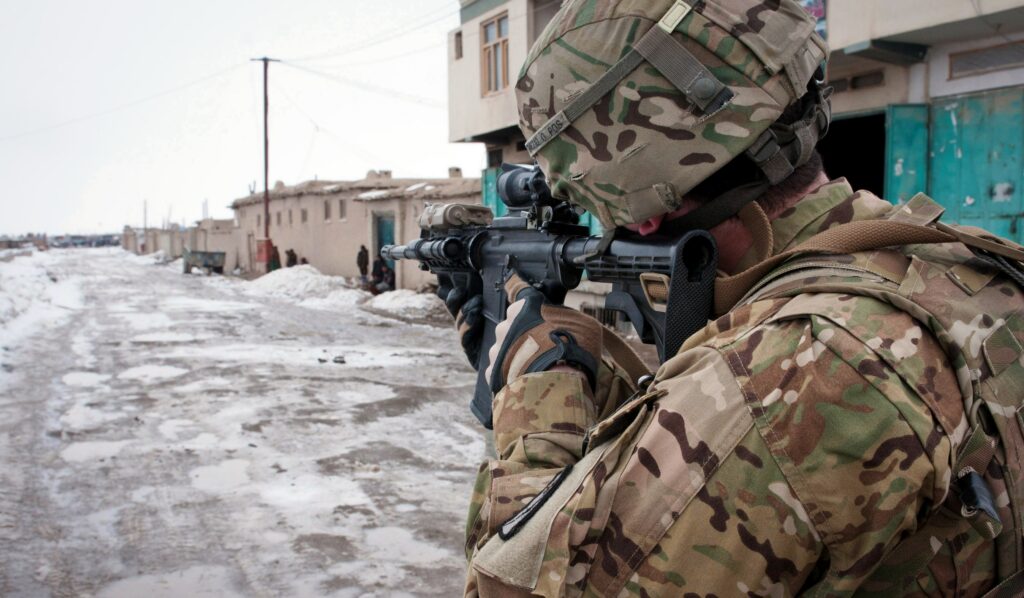
Just like in standard, more conventional warfare, capitalism doesn’t create crises like 9/11, but seems always to find ways to benefit from it. In the war-on-terror era, a narrative also popular with Russia’s leader Vladimir Putin, the beneficiaries were and still are the global military-industrial complex, private security apparatus more like small private armies, and layers of police forces. How can one go wrong in terms of maximum profit?
In complete haste, and with a massive international support, using the trauma to influence worldwide public opinion, an attack on Afghanistan was launched by NATO’s invincible armada. Were the Taliban governing the country at the time responsible for 9/11? Not so. Their fault was to host the man who was arguably the architect of the attack: enemy-number-one Osama bin-Laden, of course. The fact that most of the pilots who flew the planes into the Twin Towers of the World Trade Center and the Pentagon were Saudi Arabian nationals was not even dismissed, it wasn’t even publicly considered by governments or the corporate controlled mainstream media.
As matter of fact, many families of the 9/11 Twin Towers attack victims are still trying to get a sense of closure on a potential involvement of Saudi Arabia, at the highest level, in the tragedy to this day without much success, as a form of foreign policy Omerta seems to prevail in the US with the Saudis royal family. This was certainly not a war of necessity, it barely qualified as a war of choice, as it was a pure fit of anger against an individual and his relatively small organization, not even against a state .
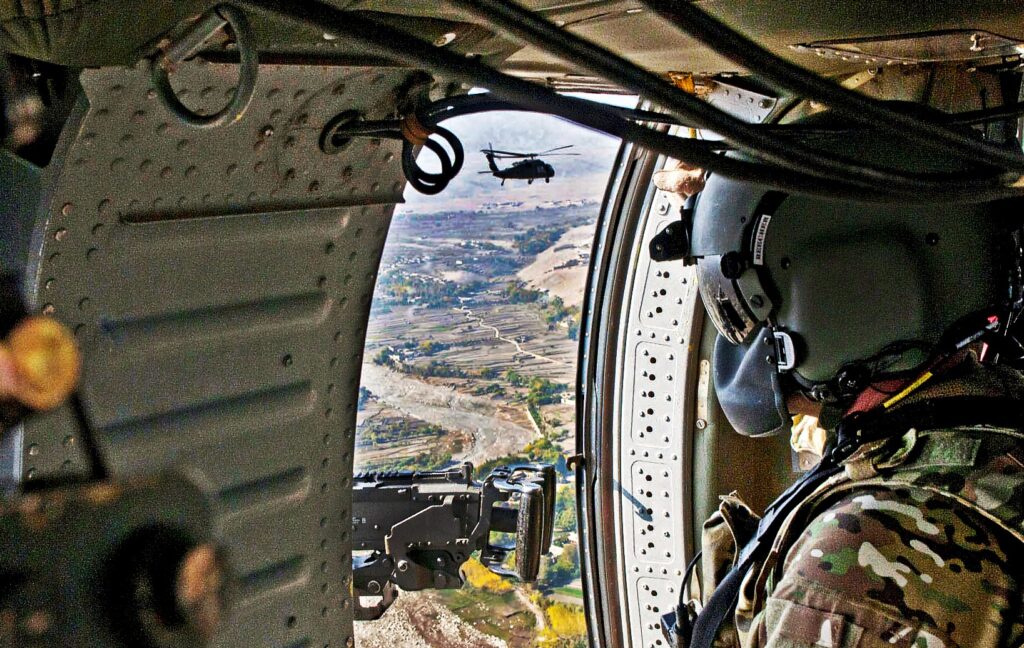
Twenty years later, back to square one, with the Taliban in control of Afghanistan affairs, but NATO, the military coalition of the impulsive and ill informed are still not candidly making mea culpa, and admitting their gross ineptitude and almost criminal negligence. Colossal failure was always written all over Afghanistan’s bullets ridden walls, mosques and even modest fruit stands! Quagmires were also perfectly predictable in the war on terror sequels in Iraq; Libya (using French/Anglo/UAE proxies); Syria (using proxy good Jihadists), then ISIS (once many of the good Sunni Jihadists somehow decided to turn bad). Described like this the 20-year war on terror’s horrendous fiascos sound like the theater of the absurd! Absurd for the successive policy makers and incompetent or corrupt planners, but tragic for the almost one million dead and their surviving families, the 38 million refugees or internally displaced, and countries like Libya, turned into wrecked failed states. Meanwhile the military-industrial complex, including the private contractors, has become more powerful than ever.
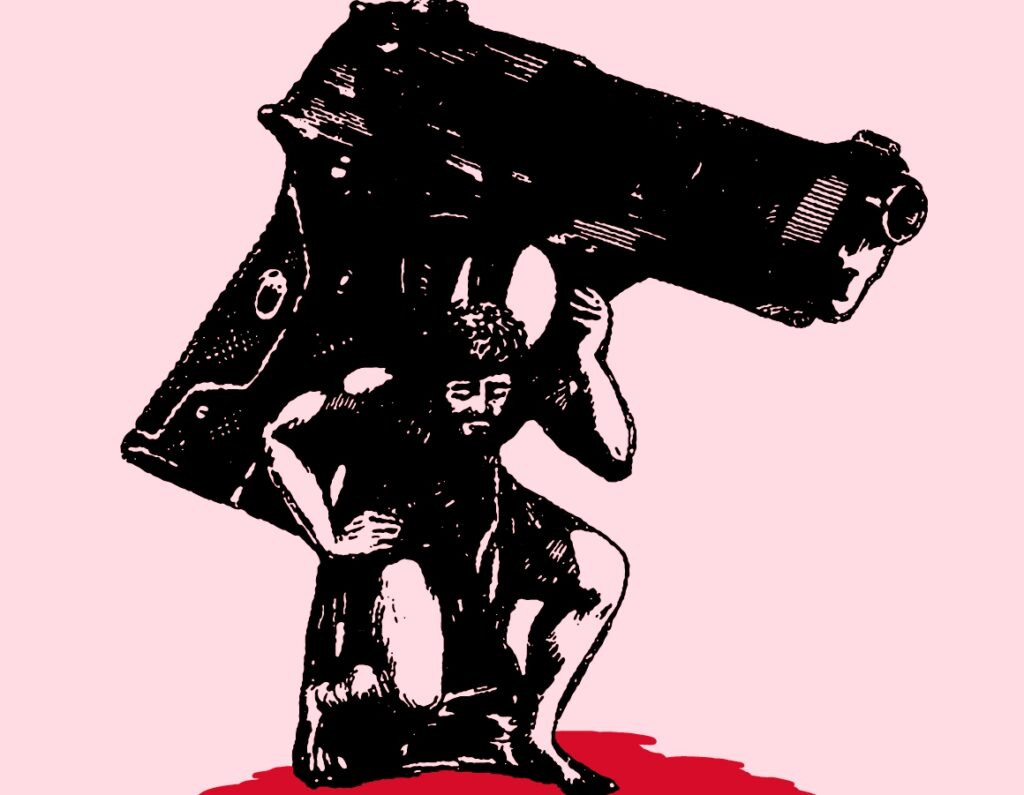
The tragically failed policies of the past 20 years have to be quantified. According to Brown University Watson Institute, and this is a conservative estimate, the human cost of post 9/11 wars is around 800,000 in direct deaths; 38 million people worldwide is the number of war refugees and displaced persons collateral victims of the war on terror; and finally, the US war on terror spending from 2001 to 2020 was $6.4 trillion. All this money extracted from the US taxpayers, and enthusiastically approved in Congress by both Democrats and Republicans, was injected into the private corporations of the military-industrial complex, the Pentagon of course, to a lesser extend, and ultimately as a billionaire-making cash bonanza into Wall Street and all global financial markets. How it works is rather simple: below are two prime examples, among countless other similar schemes, to profit from the war machine.
One quick example of war for mega-profit comes to mind. Before he accepted to be George W. Bush’s running mate in 2000, Dick Cheney was the CEO of the giant construction, oil and mineral extraction firm Halliburton. Right before he started to campaign, he, of course, resigned from his CEO function and sold his huge Halliburton stock portfolio to avoid conflict of interests. Fast forward to 2003, and guess which firm is getting the lion share of private contracts for the Iraq war? Halliburton of course. Coincidence? Hard to believe. Such example of vast sums of money being recycled from the taxpayers’ pocket book to the coffers of private companies war profiteers are countless.

The other example is the major weapon systems manufacturer Lockheed Martin. Lockheed Martin manufactures fighter jets like F-15, F-16, F-35, and F-21; helicopters like Blackhawks and Cyclone, as well as Drones. On January 19, 2000 the share value for Lockheed Martin was $12.10. By January 17, 2020 Lockheed Martin stock traded at $408.77 a share. The bottom line: who in the US Congress would dare to say no to funding the military-industrial complex via the US Defense Department budget? Basically nobody. It would be deemed unpatriotic and bad for the job market, considering that the military-industrial complex employs a lot of people.

Terror is out, global pandemic is in
One cannot help making an analogy between the war on terror and the new global war for profit, which is the war on Covid. As the war on terror is being exposed as a complete fiasco and receding in history’s rear view mirror, global capitalism needed something else. It magically materialized as a global biological warfare against a virus.What a golden opportunity! Since March 2020 — a bit later in the crisis actually — the beneficiaries of the war on Covid have been, not only pharmaceutical companies, but also digital giants that benefit from remote-location work due to measures like lockdowns, online commerce; and, finally, the global financial markets.
France’s President Macron was, to my knowledge, the very first world leader to use the bellicose semantic of war on Covid. He did it in March 2020. We have seen previously that the war on terror has been immensely profitable for the nexus of global corporate imperialism, but the recent war on Covid could be even more profitable, as its protagonists/profiteers appear to be benevolent, even altruistic. The current push worldwide, and Macron was once again ahead of the game, is either to make vaccination mandatory, or blackmail the population with coercive measures like the Pass Sanitaire in France, to obey and comply.
This is the calculus and assumption that all governments and biotech affiliates are likely making. Let’s say that they manage to make vaccination mandatory. Worldwide, you would have a captive market of around 7.8 billion people. Even if 800 million people globally resist vaccination, we are talking about an extraordinarily profitable market. At around $15 per dose for the best-adopted vaccines on the market, which are from Pfizer and Moderna, multiplied by two, or even better by three, as is now recommended by pharmaceutical companies and some governments, because of the Delta variant, we are talking about some serious cash flow. With booster jabs likely recommended down the line every nine months or so, we are talking about a biotech Eldorado!
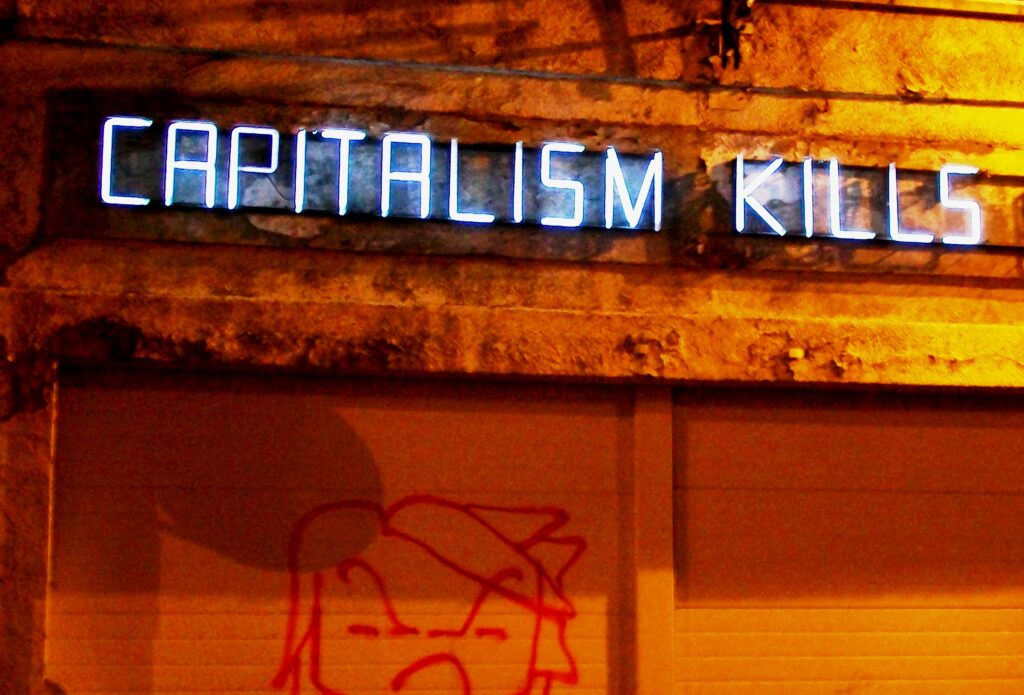
As an example of the heavenly jolt of joy vaccines have already injected into the arms of the Masters of the Universe of global finance, Moderna stock on January 2, 2020 traded at $19.57 a share. On August 11, 2021, Moderna stock traded on Wall Street at $440.00 a share. It is rather obvious, besides various stimulus package schemes applied in all countries to boost economies and prevent a massive Covid economic recession, global financial markets, with the big hedge funds pulling the strings, have become addicted to vaccines. It is no wonder that all major Wall Street firms such as Goldman Sachs and Morgan Stanley have already made vaccination mandatory for their employees. It is no wonder either, why stock markets, like the CAC40 in France, have reached record high despite a severe contraction of the real economy.
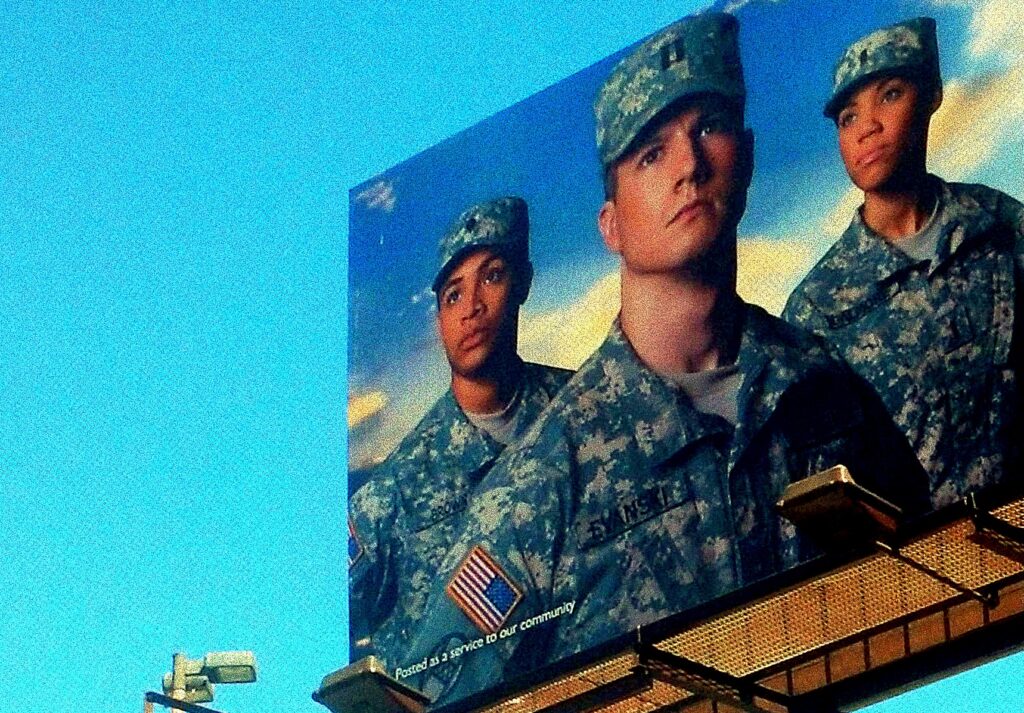
I previously mentioned the real cost of the 20-year war on terror as being $6.4 trillion for the United States alone. It is not yet possible to quantify the real cost of the so-called global war on Covid. One can suspect it will be very high as well, and its human cost higher in term of diminished personal liberties. The negative side effects of the war on Covid are mainly sociological and psychological, as it has already increased human isolation and fragmented communities. This 18-month old pseudo war on a virus has also withdrawn global resources and focus from the only war of necessity, the one critical for our species survival: namely the war on climate collapse.

War on climate collapse is a war against capitalism
The war on Covid could even last longer than the war on terror. Cynically, the reason for this is that the war on Covid has worked wonders for the benefit of corporations and the super-rich. It has also allowed for governments that are supposed to be neoliberal economically and progressive socially to become paradoxically authoritarian. A prime example, in this instance, is again Emmanuel Macron’s government in France. As long as wars, invented or not, either conventional or conceptual, can be used to extract a profit, they will remain the modus operandi for the billionaire class and their political surrogates. It might sound Utopian, but let’s just imagine for a moment what humanity could do collectively to address the climate crisis existential threat, if we were going to implement a global policy of massive cuts in military spending and security apparatus.
Trillion of dollars could be allocated to the true emergency that will determine our survival or extinction. What could be more critical than this for our children and grandchildren? Climate collapse is on its way. During this entire summer, large areas of Earth were on fire, and others were flooded. Killer storms will keep coming relentlessly at us. Before 2050 many coastlines will be submerged, causing more than 1 billion people worldwide to become the climate collapse refugees. This is not a projection or speculation, it is documented by the scientific community.

Unfortunately, the reason why our Banana Republic styles of governments are not willing to fight this war of necessity, the war on climate change, is because it can only be really fought by getting rid of the capitalist system altogether. Radical approaches are needed, such as scrapping capitalism’s holy precept of permanent economic growth and its correlation of population growth. The remedies to try to mitigate the unfolding climate collapse would be many tough pills to swallow, because it’s about drastic systemic changes. Such as a zero-growth, sometime called negative-growth, economic model, which even Green parties at large do not embrace. The notion of Green New Deal is ludicrous. Green politicians either do not get it or are complete hypocrites if they are not also staunch anti-capitalists.
Another issue almost never addressed by Green politicians anywhere is the one of overpopulation. The rapid growth of the human population is a fundamental factor for capitalism as it provides two critical elements: plenty of cheap labor as well as a continuously growing consumption base. Case in point, in 1850 or at the start of the industrial revolution, the global world population stood at around 1 billion people; currently, or 171 years later and not much time in term of human history, it stands at around 7.8 billion. Some demographic projections forecast that it will reach between 10 to 13 billion by 2100. Needless to say, from a purely physical standpoint, this is entirely unsustainable as the surface of Earth’s landmass has gone unchanged. The problem with overpopulation, as an issue, is that almost everyone in every culture rightly views his or her ability to procreate as a fundamental right. My News Junkie Post partner, Dady Chery, and I, we know that even to bring up overpopulation as an issue is extremely unpopular. However, it has to be done.

Without a massive reduction in carbon emissions, we are on track to pass the fatal mark of a 2-degree Celsius global warming, not by 2050 but by 2035. In other words, a wrench has to be jammed into the gear of the infernal machine created by humans since the mid-19th century’s industrial revolution. Carbon emitting fossil fuels, of any kind, have to stay in the ground. Combustion vehicles should be banned promptly, and massive subsidies should be given to produce extremely affordable and fully electrical cars immediately.
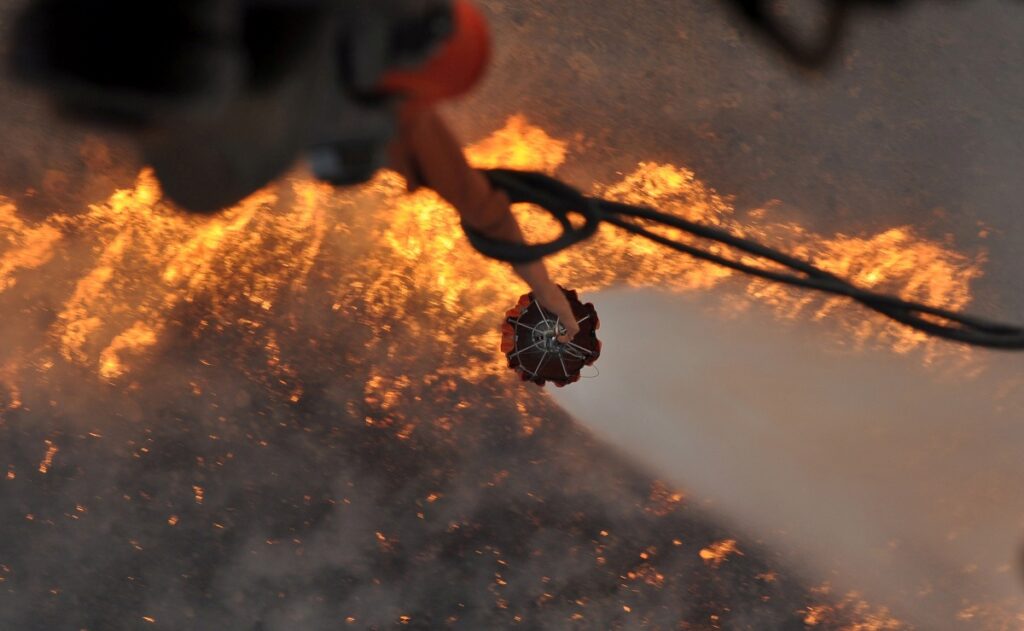
Many in the West point the finger at the big carbon emitters, which are China, India and Brazil. But they are not the only culprits for the nearly criminal inaction of our governing instances. The populations of countries that rely heavily on extraction must put a severe pressure on their politicians or vote them out of office. One thinks, of course, of the Gulf’s usual suspects like Saudi-Arabia, Qatar, and the United Arab Emirates, but other major players are almost as nefarious as far as having an economy built on energy or mineral extraction. A short list of the main countries heavily involved in the fossil fuel extraction business, either for domestic consumption or exports, would be: Russia, The United States, Canada, Iraq, Libya, Venezuela, and Iran.
Would the various radical changes – including capping human population growth- which seem to be objectively needed be painful? Certainly. But the alternative option, which is basically to keep the course of this giant high-speed bullet train without a pilot that is global capitalism, amounts to a medium-term collective suicide.
Editor’s Notes: Gilbert Mercier is the author of The Orwellian Empire. Photographs one, five, nine, ten, twelve, thirteen, fourteen and fifteen by Gilbert Mercier; photograph two by Gianfranco Goria; photograph three from the archive of Halloween HJB; photograph four from the archive of Recuerdos de Pandora; photographs six, seven and sixteen from the US Army archive; photograph eight from the archive of Christopher Dombres; and photograph eleven by Jeremy Hunsinger.
Live interview of Gilbert Mercier on this topic with Inayet Wadee on South African based radio Salaamedia, August 11, 2021.
Related Articles













You must be logged in to post a comment Login